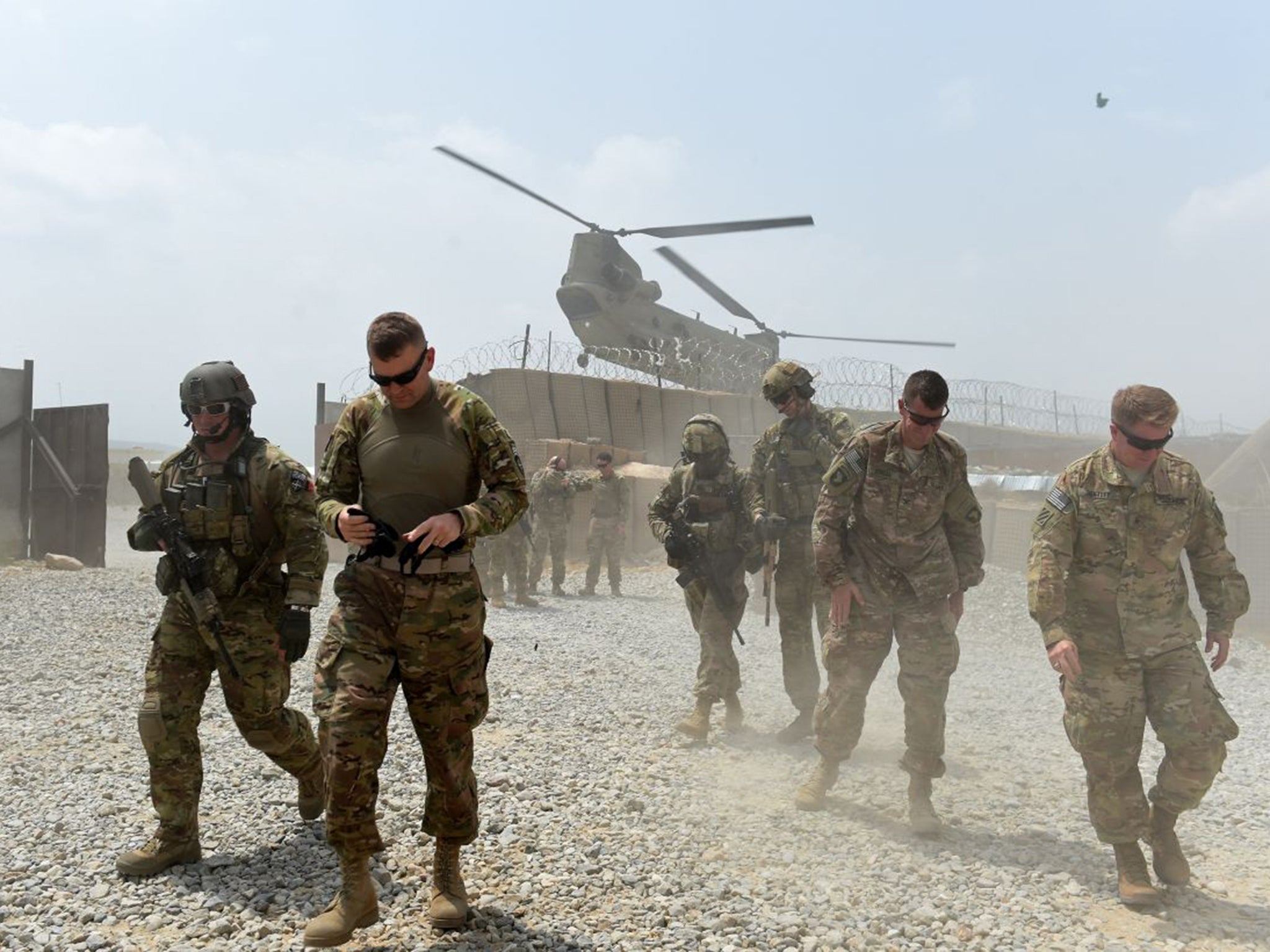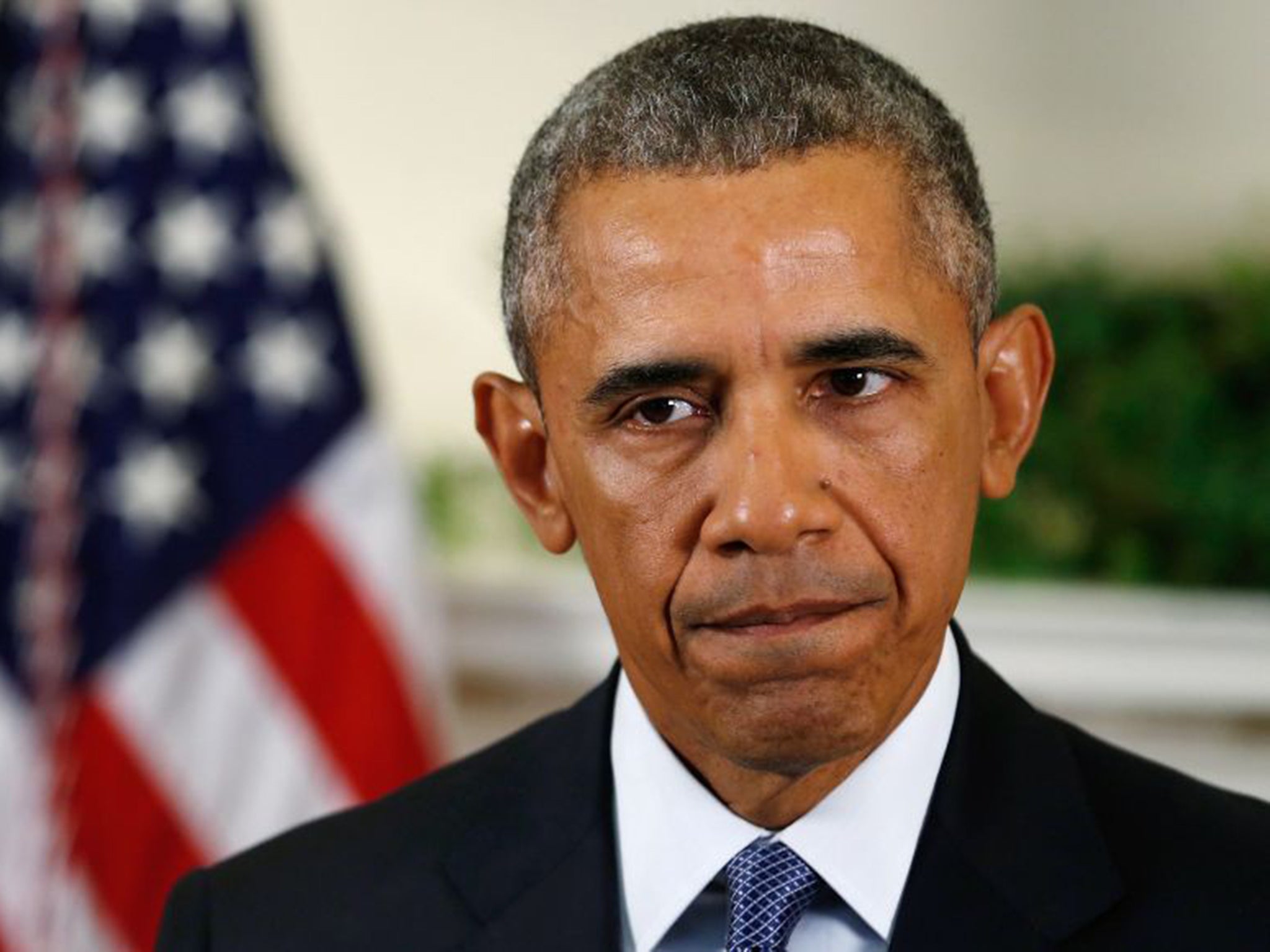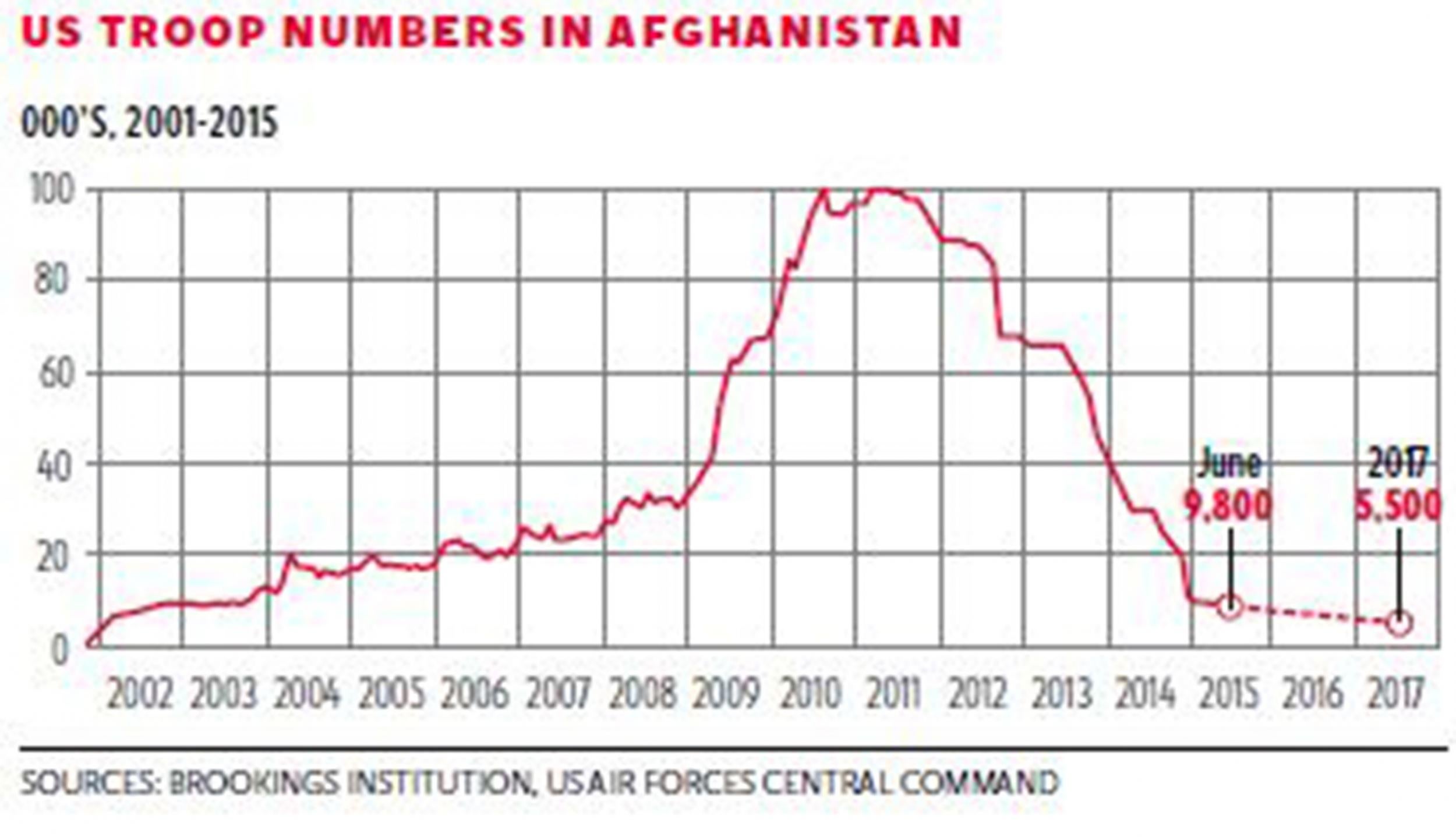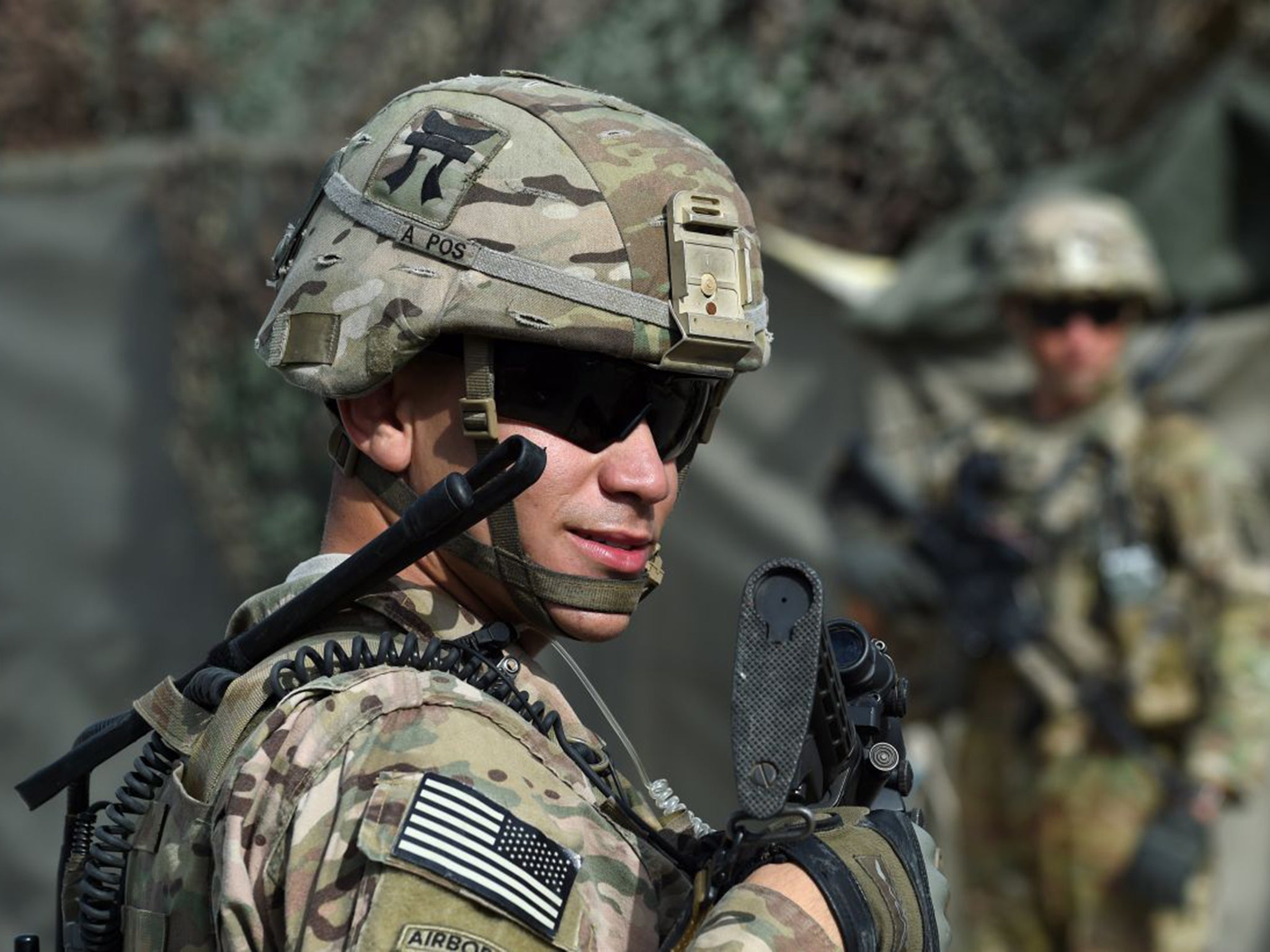America's U-turn on Afghanistan troop withdrawal 'not a disappointment,' claims President Obama
Mr Obama had wanted to leave office having pulled out all US military, but has reluctantly agreed that 5,500 must remain beyond 2016 and the end of his presidency

Your support helps us to tell the story
From reproductive rights to climate change to Big Tech, The Independent is on the ground when the story is developing. Whether it's investigating the financials of Elon Musk's pro-Trump PAC or producing our latest documentary, 'The A Word', which shines a light on the American women fighting for reproductive rights, we know how important it is to parse out the facts from the messaging.
At such a critical moment in US history, we need reporters on the ground. Your donation allows us to keep sending journalists to speak to both sides of the story.
The Independent is trusted by Americans across the entire political spectrum. And unlike many other quality news outlets, we choose not to lock Americans out of our reporting and analysis with paywalls. We believe quality journalism should be available to everyone, paid for by those who can afford it.
Your support makes all the difference.Barack Obama has abandoned one of the main tenets of his two terms in office saying he had approved the continued deployment of more than 5,000 troops in Afghanistan beyond the end of 2016 and therefore also of his presidency.
The decision, Mr Obama attempted to explain after making the announcement in the White House, flanked by Vice President Joe Biden and the Defence Secretary Ashton Carter, was “not a disappointment”.
“I am firmly convinced that we should make this extra effort,” he said, calling the new commitment “modest but meaningful”.
The decision, at odds with Mr Obama’s pledge to end America’s involvement in foreign wars and in the face of a resurgent Taliban, will come as a relief to the government in Kabul of President Ashraf Ghani and Chief Executive Abdullah Abdullah, which had pleaded with Washington for an extension of support.

US officials said withdrawal plans had been subject to review since March. Mr Obama made clear that the improved relationship with the new government in Kabul had made the decision easier.
The President stressed he was not reinserting US troops in full-blown combat in Afghanistan – the US and Nato ended their combat missions at the end of last year – and that US soldiers would remain limited to two roles: training Afghan forces and supporting anti-terrorism operations.
Under the old timetable, the nearly 10,000 US soldiers now engaged in anti-terror and training missions would have been pared back during 2016 leaving just 1,000 troops behind by the year’s end, all stationed within the US embassy compound in Kabul. That withdrawal will now be delayed and 5,500 US troops will remain stationed at bases across the country in 2017.

Pressure on Mr Obama to relent had also been coming from the Pentagon, amidst growing concern that the Afghan forces were not making progress to handle threats from insurgent forces. The question became even more urgent after the Taliban briefly overran the city of Kunduz last month before being chased out again with Nato and US air support.
Mr Obama indicated that the new timeline and force levels were not set in stone. “I suspect that we will continue to evaluate this as will the next president.” He suggested that others in the Nato coalition may also have to reconsider their timetables for withdrawal. “We will work with allies and partners to align the steps we are announcing today with their own presence in Afghanistan,” he said.
The U-turn was welcomed by Afghan police and soldiers. One police commander said the announcement is a big morale booster for the Afghan forces, who have been on the defensive ever since the American pullback began in 2011.
This is a huge morale booster for Afghan soldiers
“We need US air power, its intelligence network and transport. We are fighting an international militant group, so this is also about the world security,” Afzal Khan, police commander in the north-eastern province of Kunduz, told The Independent.
An Afghan local police commander in the eastern Paktika province, called Toofan, said the Afghan forces had become weak and vulnerable in the absence of US forces. “When the US Special Forces were with us, we had an upper hand in the fight against the Taliban and the Haqqanis,” he said. “US helicopters and jets gave us eyes in the air, we could see behind mountains and deep inside the valleys. Food and ammunition supply was a given, we knew they will be delivered. We knew our wounded would be airlifted. But this support vanished as the US began the pullout, leaving us weak and vulnerable.”
A spokesman for the governor of southern Helmand province said the suspension of the drawdown will motivate Afghan forces to fight better. “This is a huge morale booster for the Afghan soldiers,” said Omar Zwak. “The US presence is critical for intelligence-gathering, logistics and training.”
In the eastern Nangarhar province, a border police commander said the past few months have proved the Afghans need more time to take security of the country into their own hands.
“We need US fighter jets and drones. This war is no more limited to Taliban. We are fighting Isis also. We can’t fight this war on our own,” he said, requesting anonymity as his view may not concur with that of the Afghan government.
Obama shouldn’t short-change what our military commanders have said they need to complete the mission
The US Commander in Afghanistan, General John Campbell, also hailed the decision, saying in a statement that it “serves notice to our common enemies: their war against the Afghan government, the Afghan people, the international community, and our shared values, remains futile. It is time for them to lay down their arms and enter the political process”.

Looming over Afghan policy is the widely held perception that the civil war in Iraq and spread there of Isis forces was in part precipitated by Mr Obama being too anxious to take America out of the country. Sticking to his pledge to all but pull out of Afghanistan threatened further damage to his legacy if the situation there subsequently also span out of control.
The Republican presidential candidate Jeb Bush said he was glad Mr Obama had “dropped his plan to abandon the region entirely” but also questioned whether a 5,500-strong mission from 2017 would be enough. “He shouldn’t short-change what our military commanders have said they need to complete the mission.”
Join our commenting forum
Join thought-provoking conversations, follow other Independent readers and see their replies
Comments